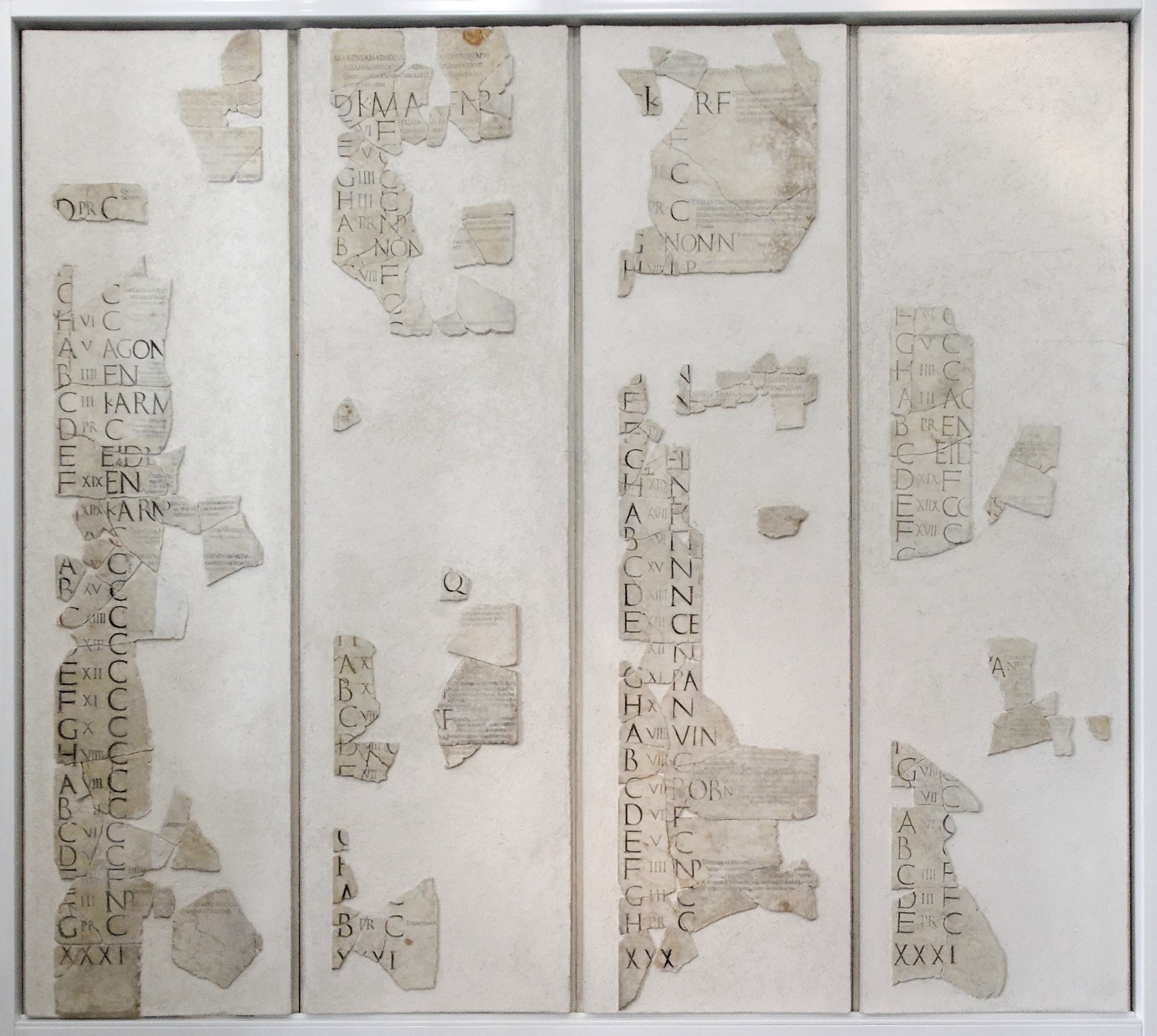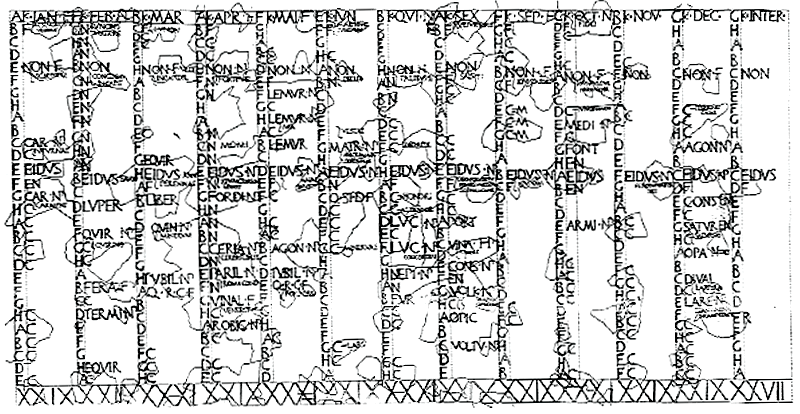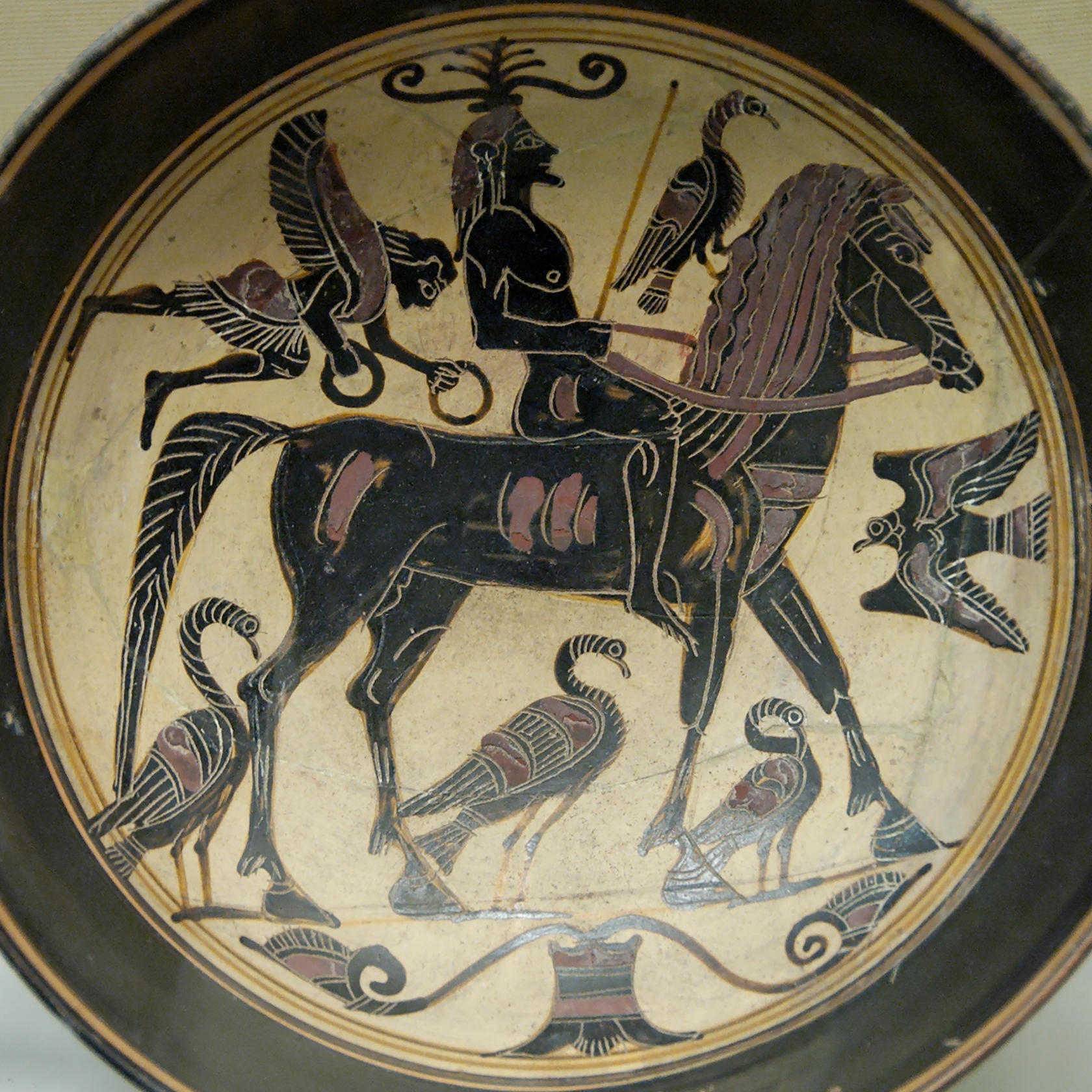|
Sextilis
Sextilis ("sixth") or ''mensis Sextilis'' was the Latin name for what was originally the sixth month in the Roman calendar, when March ('' Martius'', "Mars' month") was the first of ten months in the year. After the calendar reform that produced a twelve-month year, Sextilis became the eighth month, but retained its name. It was renamed ''Augustus'' (August) in 8 BC in honor of the first Roman emperor, Augustus. Sextilis followed Quinctilis, which was renamed ''Julius'' (July) after Julius Caesar, and preceded September (from ''septem'', "seven"), which was originally the seventh month. The month ''Augustus'' ''Julius'' (July) was renamed from ''Quintilis'' ("fifth" month) in honor of Julius Caesar, who had adopted his grand-nephew Octavian, the future Augustus, and made him his heir. It has sometimes been thought that the month has 31 days because Augustus wanted as many days in his month as in his predecessor's, but Sextilis in fact had 31 days since the reform during Cae ... [...More Info...] [...Related Items...] OR: [Wikipedia] [Google] [Baidu] |
Julian Calendar
The Julian calendar, proposed by Roman consul Julius Caesar in 46 BC, was a reform of the Roman calendar. It took effect on , by edict. It was designed with the aid of Greek mathematicians and astronomers such as Sosigenes of Alexandria. The calendar became the predominant calendar in the Roman Empire and subsequently most of the Western world for more than 1,600 years until 1582, when Pope Gregory XIII promulgated a minor modification to reduce the average length of the year from 365.25 days to 365.2425 days and thus corrected the Julian calendar's drift against the solar year. Worldwide adoption of this revised calendar, which became known as the Gregorian calendar, took place over the subsequent centuries, first in Catholic countries and subsequently in Protestant countries of the Western Christian world. The Julian calendar is still used in parts of the Eastern Orthodox Church and in parts of Oriental Orthodoxy as well as by the Berbers. The Julian calenda ... [...More Info...] [...Related Items...] OR: [Wikipedia] [Google] [Baidu] |
Roman Calendar
The Roman calendar was the calendar used by the Roman Kingdom and Roman Republic. The term often includes the Julian calendar established by the reforms of the Roman dictator, dictator Julius Caesar and Roman emperor, emperor Augustus in the late 1stcenturyBC and sometimes includes any system dated by inclusive counting towards months' kalends, nones (calendar), nones, and ides (calendar), ides in the Roman manner. The term usually excludes the Alexandrian calendar of Roman Egypt, which continued the unique months of that land's Egyptian calendar, former calendar; the Byzantine calendar of the Byzantine Empire, later Roman Empire, which usually dated the Roman months in the simple count of the ancient Greek calendars; and the Gregorian calendar, which refined the Julian system to bring it into still closer alignment with the tropical year. Roman dates were counted inclusively forward to the next of three principal days: the first of the month (the kalends), a day shortly befor ... [...More Info...] [...Related Items...] OR: [Wikipedia] [Google] [Baidu] |
Ides (calendar)
The Roman calendar was the calendar used by the Roman Kingdom and Roman Republic. The term often includes the Julian calendar established by the reforms of the dictator Julius Caesar and emperor Augustus in the late 1stcenturyBC and sometimes includes any system dated by inclusive counting towards months' kalends, nones, and ides in the Roman manner. The term usually excludes the Alexandrian calendar of Roman Egypt, which continued the unique months of that land's former calendar; the Byzantine calendar of the later Roman Empire, which usually dated the Roman months in the simple count of the ancient Greek calendars; and the Gregorian calendar, which refined the Julian system to bring it into still closer alignment with the tropical year. Roman dates were counted inclusively forward to the next of three principal days: the first of the month (the kalends), a day shortly before the middle of the month (the ides), and eight days—nine, counting inclusively—before this (the ... [...More Info...] [...Related Items...] OR: [Wikipedia] [Google] [Baidu] |
Nones (calendar)
The Roman calendar was the calendar used by the Roman Kingdom and Roman Republic. The term often includes the Julian calendar established by the reforms of the dictator Julius Caesar and emperor Augustus in the late 1stcenturyBC and sometimes includes any system dated by inclusive counting towards months' kalends, nones, and ides in the Roman manner. The term usually excludes the Alexandrian calendar of Roman Egypt, which continued the unique months of that land's former calendar; the Byzantine calendar of the later Roman Empire, which usually dated the Roman months in the simple count of the ancient Greek calendars; and the Gregorian calendar, which refined the Julian system to bring it into still closer alignment with the tropical year. Roman dates were counted inclusively forward to the next of three principal days: the first of the month (the kalends), a day shortly before the middle of the month (the ides), and eight days—nine, counting inclusively—before this (the ... [...More Info...] [...Related Items...] OR: [Wikipedia] [Google] [Baidu] |
Quinctilis
In the ancient Roman calendar, Quintilis or Quinctilis was the month following Junius (June) and preceding Sextilis (August). ''Quintilis'' is Latin for "fifth": it was the fifth month (''quintilis mensis'') in the earliest calendar attributed to Romulus, which began with Martius (" Mars' month," March) and had 10 months. After the calendar reform that produced a 12-month year, Quintilis became the seventh month, but retained its name. In 45 BC, Julius Caesar instituted a new calendar (the Julian calendar) that corrected astronomical discrepancies in the old. After his death in 44 BC, the month of Quintilis, his birth month, was renamed ''Julius'' in his honor, hence July."Los Cielos de Agosto" (Spanish: "The Skies of August"), Jorge R. Ianiszewski, ''Circulo Astronomico'', 2006, webpageCirA-Agosto Quintilis was under the guardianship ''(tutela)'' of the Romans' supreme deity Jupiter, with sacrifices made particularly to Neptune and Apollo. Agricultural festivals directed at t ... [...More Info...] [...Related Items...] OR: [Wikipedia] [Google] [Baidu] |
Quintilis
In the ancient Roman calendar, Quintilis or Quinctilis was the month following Junius (June) and preceding Sextilis (August). ''Quintilis'' is Latin for "fifth": it was the fifth month (''quintilis mensis'') in the earliest calendar attributed to Romulus, which began with Martius (" Mars' month," March) and had 10 months. After the calendar reform that produced a 12-month year, Quintilis became the seventh month, but retained its name. In 45 BC, Julius Caesar instituted a new calendar (the Julian calendar) that corrected astronomical discrepancies in the old. After his death in 44 BC, the month of Quintilis, his birth month, was renamed ''Julius'' in his honor, hence July."Los Cielos de Agosto" (Spanish: "The Skies of August"), Jorge R. Ianiszewski, ''Circulo Astronomico'', 2006, webpageCirA-Agosto Quintilis was under the guardianship ''(tutela)'' of the Romans' supreme deity Jupiter, with sacrifices made particularly to Neptune and Apollo. Agricultural festivals directed at the ... [...More Info...] [...Related Items...] OR: [Wikipedia] [Google] [Baidu] |
Augustus
Caesar Augustus (born Gaius Octavius; 23 September 63 BC – 19 August AD 14), also known as Octavian, was the first Roman emperor; he reigned from 27 BC until his death in AD 14. He is known for being the founder of the Roman Principate, which is the first phase of the Roman Empire, and Augustus is considered one of the greatest leaders in human history. The reign of Augustus initiated an imperial cult as well as an era associated with imperial peace, the ''Pax Romana'' or ''Pax Augusta''. The Roman world was largely free from large-scale conflict for more than two centuries despite continuous wars of imperial expansion on the empire's frontiers and the year-long civil war known as the "Year of the Four Emperors" over the imperial succession. Originally named Gaius Octavius, he was born into an old and wealthy equestrian branch of the plebeian ''gens'' Octavia. His maternal great-uncle Julius Caesar was assassinated in 44 BC, and Octavius was named in Caesar' ... [...More Info...] [...Related Items...] OR: [Wikipedia] [Google] [Baidu] |
August
August is the eighth month of the year in the Julian and Gregorian calendars, and the fifth of seven months to have a length of 31 days. Its zodiac sign is Leo and was originally named ''Sextilis'' in Latin because it was the 6th month in the original ten-month Roman calendar under Romulus in 753 BC, with March being the first month of the year. About 700 BC, it became the eighth month when January and February were added to the year before March by King Numa Pompilius, who also gave it 29 days. Julius Caesar added two days when he created the Julian calendar in 46 BC (708 AUC), giving it its modern length of 31 days. In 8 BC, it was renamed in honor of Emperor Augustus. According to a Senatus consultum quoted by Macrobius, he chose this month because it was the time of several of his great triumphs, including the conquest of Egypt. Commonly repeated lore has it that August has 31 days because Augustus wanted his month to match the length of Julius Caesar's July, but t ... [...More Info...] [...Related Items...] OR: [Wikipedia] [Google] [Baidu] |
September (Roman Month)
September (from Latin ''septem'', "seven") or ''mensis September'' was originally the seventh of ten months on the ancient Roman calendar that began with March ('' mensis Martius'', "Mars' month"). It had 29 days. After the reforms that resulted in a 12-month year, September became the ninth month, but retained its name. September followed what was originally Sextilis, the "sixth" month, renamed ''Augustus'' in honor of the first Roman emperor, and preceded October, the "eighth" month that like September retained its numerical name contrary to its position on the calendar. A day was added to September in the mid-40s BC as part of the Julian calendar reform. September has none of the archaic festivals that are marked in large letters for other months on extant Roman ''fasti''. Instead, about half the month is devoted to the ''Ludi Romani'', "Roman Games", which developed as votive games for Jupiter Optimus Maximus ("Jupiter Best and Greatest"). The ''Ludi Romani'' are the oldest ... [...More Info...] [...Related Items...] OR: [Wikipedia] [Google] [Baidu] |
Sousse Mosaic Calendar August
Sousse or Soussa ( ar, سوسة, ; Berber:''Susa'') is a city in Tunisia, capital of the Sousse Governorate. Located south of the capital Tunis, the city has 271,428 inhabitants (2014). Sousse is in the central-east of the country, on the Gulf of Hammamet, which is a part of the Mediterranean Sea. Its economy is based on transport equipment, processed food, olive oil, textiles, and tourism. It is home to the Université de Sousse. Toponymy ''Sousse'' and ''Soussa'' are both French spellings of the Arabic name ''Sūsa'', which may derive from Berber (cf., e.g., Morocco's Sous River and Region). The present city has also grown to include the ruins of Hadrumetum, which had many names in several languages during antiquity.Barrington Atlas of the Greek and Roman World, Gazeteer, page 511, Map 33 Theveste-Hadrumetum, Compiled by R.B. Hitchner, 1997, in file BATL033_.PDF iB_ATLAS.ZIP froPrinceton University Press , Subjects, Barrington Atlas of the Greek and Roman World. R. ... [...More Info...] [...Related Items...] OR: [Wikipedia] [Google] [Baidu] |
Auspices
Augury is the practice from ancient Roman religion of interpreting omens from the observed behavior of birds. When the individual, known as the augur, interpreted these signs, it is referred to as "taking the auspices". "Auspices" (Latin ''auspicium'') literally means "looking at birds", and Latin ''auspex'', another word for "augur", literally means "one who looks at birds". Depending upon the birds, the auspices from the gods could be favorable or unfavorable ('' auspicious'' or ''inauspicious''). Sometimes politically motivated augurs would fabricate unfavorable auspices in order to delay certain state functions, such as elections. Pliny the Elder attributes the invention of auspicy to Tiresias the seer of Thebes, the generic model of a seer in the Greco-Roman literary culture. This type of omen reading was already a millennium old in the time of Classical Greece: in the fourteenth-century BC diplomatic correspondence preserved in Egypt called the "Amarna correspondence ... [...More Info...] [...Related Items...] OR: [Wikipedia] [Google] [Baidu] |
Roman Egypt
, conventional_long_name = Roman Egypt , common_name = Egypt , subdivision = Province , nation = the Roman Empire , era = Late antiquity , capital = Alexandria , title_leader = Praefectus Augustalis , image_map = Roman Empire - Aegyptus (125 AD).svg , image_map_caption = Province of Aegyptus in AD 125 , year_start = 30 BC , event_start = Conquest of Ptolemaic Kingdom , event1 = Formation of the Diocese , date_event1 = 390 , year_end = 641 , event_end = Muslim conquest , life_span = 30 BC – 641 AD , stat_year1 = 1st century AD , stat_pop1 = . , today = Egypt , p1 = Ptolemaic Kingdom , flag_p1 = Ptolemaic-Empire 200bc.jpg , s1 = Sasanian Egypt , flag_s1 = Derafsh Kaviani flag of the late Sassanid Empire.svg , s2 = Rashidun Caliphate , flag_s2 = Mohammad adil-Rashidun-empire-at-its-peak-close.PNG , demonym= Egypt ( ; ) was a subdivision of the Roman Empire fro ... [...More Info...] [...Related Items...] OR: [Wikipedia] [Google] [Baidu] |
_(cropped).jpg)








.jpg)